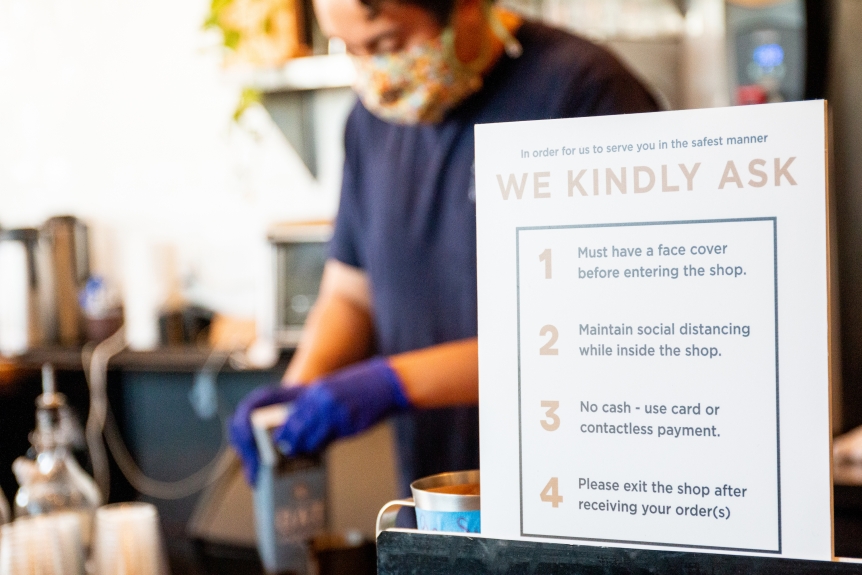Shared from the National Restaurant Association
Research conducted by the National Restaurant Association indicates that the restaurant industry has lost $120 billion in sales during March, April, and May due to the impact of coronavirus in the United States.
As state mandates allow for restaurants to reopen, jurisdictions that require face coverings in public spaces present a new challenge: guests refusing to wear masks. The Association’s Law Center partnered with Jackson Lewis P.C. to develop guidance for restaurateurs when dealing with confrontational customers or those who forgot their masks. Highlights include:
What if a guest refuses to wear a mask on Constitutional grounds? Guests and employees have no constitutional free speech rights in a private business or workplace. The First Amendment to the US Constitution protects an individual’s right to free speech from infringement by the US Government – not a private business. Similarly, state constitutions do not create such rights. A restaurant can deny service to anyone refusing to wear a mask for alleged Constitutional reasons.
What if a guest refuses to comply because of a disability? Title III of the Americans with Disabilities Act requires restaurants to provide equal enjoyment of goods and services to individuals with disabilities. The restaurant must consider reasonable accommodation it can offer without requesting medical documentation. However a restaurant need not accommodate a guest if doing so would impede the business’s ability to safely provide its goods and services. No-contact shopping, such as curbside order, should be considered.
What about violent confrontations? Under the Occupational Health and Safety Act, employers have a duty to provide a safe workplace for employees. Following are practical steps businesses can take:
Make signage abundant and clear. Per CDC recommendations, use verbal announcements, signs, and visual cues before guests enter the building.
- Provide non-contact service delivery where possible.
- Give masks away for free. This may defuse the situation, especially if the person simply forgot their mask.
- Train employees on mask policies and procedures. Employees should remain calm and discreetly seek security or local law enforcement.
- Assign the right person(s) to communicate the message.
To read the complete list, click here.
Information specific to Pennsylvania can be found at Pennsylvania Restaurant & Lodging Association (PRLA).
Murray team members Amy Mitchell, CIC, CISR, Vice President, or Andrew Nichols, Account Executive, of Commercial Solutions are available at 717.397.9600.
Share this Post

